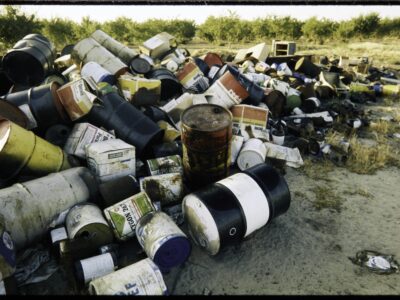Environment Now Releases Top So Cal Enviro Achievements
Air Quality: After years of negotiating with environmental groups, the Los Angeles Port adopted a Clean Truck Program that banned all pre-1989 trucks from the Port as of October, 2008. Not only has the CTP been implemented effectively but in its first full year of implementation harmful emissions were down 70 percent compared with the previous year (though some of the reductions were due to the economic downturn.)
Climate and Energy For the first time ever, California has passed legislation to require its Energy Commission to develop energy efficiency standards for existing buildings. A little known accomplishment, but one that could become a national model, AB 758 (Bass-L.A. and Skinner-Berkeley) will focus the Commission on buildings that fall substantially below California’s efficiency standards for new buildings (Title 24). Environment Now also recognized for honorable mention the the Obama Administration’s nationwide adoption of California’s greenhouse gas emissions standards for cars.
Coastal Protection Environmental NGOs negotiated with Ventura County to adopt a sweeping municipal seperate storm sewer permit. Noteworthy provisions of the permit include numeric limits for stormwater pollution and the establishment of waste load allocations to help the County meet requirements of the Clean Water Act to limit pollutants in water bodies to a total maximum daily load (TMDL). If all of this seems arcane, it’s a huge accomplishment and helps close the gap in implementation of a key part of federal law. Honorable mention also goes to the City of Los Angeles, prodded by a lawsuit by environmental groups, for reducing sewer spills by 77 percent compared with 1998 when the lawsuit was filed (the UCLA Frank G. Wells Environmental Law Clinic worked with the Santa Monica BayKeeper on the suit).
Forest Protection A coalition of environmental groups successfully challenged the adequacy of biological opinions issued in 2005 by the Forest Service to justify its forest management plans for four Southern California forests (yes we have forests in Southern California: Angeles, Cleveland, Los Padres and San Bernadino). The biological opinions were required to assess the effects of the management plans on endangered species in those forests (species include the California condor and the Peninsular bighourn sheep); in June of 2009 Judge Marilyn Patel found them to be inadequate. The lawsuit should prod the Forest Service to adopt plans that provide far more environmental protection for area forests.
Freshwater Protection and Restoration The New River, which flows northward from Baja California through border towns Mexicali and Calexico and feeds into the Salton Sea, has been described as “the most polluted river of its size” in the U.S. After years of advocacy and pressure, the clean up of the River should begin in earnest with input from community leaders. Close to $5 million has been allocated for the work.
Land Use, Smart Growth, Open Space So much for good environmental news. Judges found the setbacks in this area so large they thought setbacks were more important to highlight, though they did applaud the fact that environmetnal groups successfully blocked a portion of the proposed Mid County Parkway in Riverside County. The two major setbacks included Kern County approval of the environmental review documents for development of the largest block of private land in the entire state, Tejon Mountain Village. The land is ecologically very important and hosts important habitat, scenery and wildlife. Environmental groups have challenged the approval. The second setback is a legislative exemption from the California Environmental Quality Act for a proposed NFL football stadium in the City of Industry.







Reader Comments